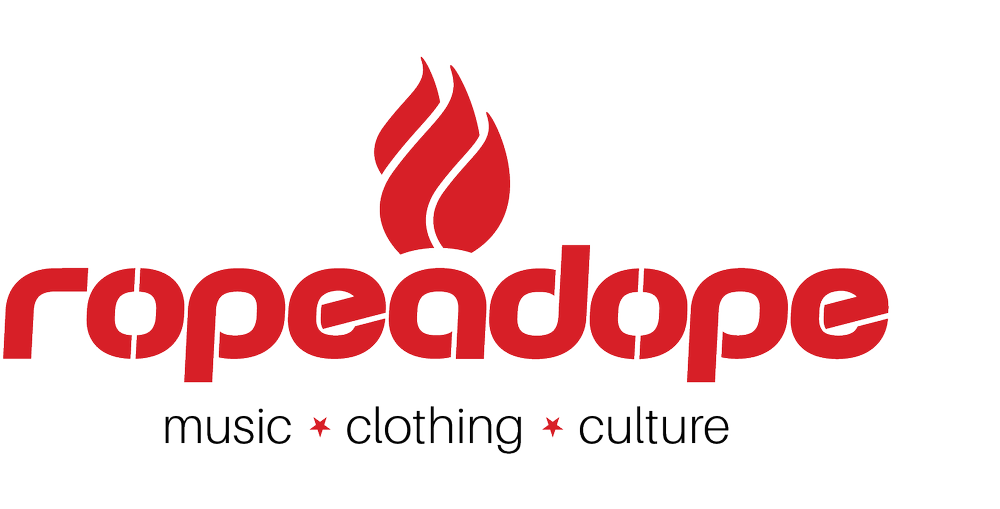Dana Murray
From the great city of Omaha Nebraska, Dana Murray is a drummer, producer, and a new kind of educator. He grew up watching the greats play in North Omaha, and he knew he'd better get his chops if he wanted to be in that company. And yet instead of a drummer's record, Dana brings us Negro Manifesto, an album of music with a purpose that evokes thoughts of many, from Gil-Scott Heron to Hip-Hop activists The Goats, from Coltrane to Philip Glass. Negro Manifesto is a reflection on our world from a man who is comfortable in all scenarios, and it is intended to bring dialogue around the subject of social justice. Dana will be touring - playing music and holding panel discussions on race, gender, and community throughout 2018. Stay tuned for previews of the album, recorded commentary from Dana, and a continued discussion to help us learn and heal.
release date: april 20, 2018
About Dana Murray
Omaha Nebraska. The history is similar enough to other cities – from Crenshaw Blvd to Harlem River Drive – as the main artery of North 24th St carried the pulse of African American music. In the ballroom days everyone came through – Count Basie, Duke Ellington, Louis Armstrong, Dinah Washington – the list goes on. And the scene was strong – local players were tapped by national acts for not only their skill but for a style that carried the blues within. One of the strongest of those cats – Preston Love – carried Omaha with pride and returned to create Love’s Jazz and Art Center on North 24th.
Dana Murray’s first musical experience was with the drums, but it wasn’t until he was 9 that he realized this would be his life. As a young man he went to The Showcase, and was soon invited down to the jam session at Kilgore’s. He had heard the intricacy of the technique, and now at the jam sessions he was surrounded by players far beyond him. This was his primary motivational tool that carries to this day.
Dana Murray grew up in Omaha, drawing experience in both the projects of South Omaha and the world of more fortunate professional types. He is comfortable recognizing and speaking to people who have preconceived notions of others. While he looks for people to acknowledge the limits of their worldview, he is also a pragmatist. Dana created The Negro Manifesto to inform us all, and he is embarking on a national tour to perform the music and discuss the issues openly in panel style discussion.
The Negro Manifesto; the title alone sets the tone. We will be discussing the issues, and we will be exploring it through sound. Dana brings a worldly, producer’s view of not only music but life. Delving into social issues, especially among musicians, one can find those that have struggled and have found their way with a message of hope and love. They speak of their personal struggle from Crenshaw to Hollywood, or Washington Heights to Lincoln Center. Dana transcends that message, as his background includes comfort with the south side and the suburbs. He can speak of more than his personal experiences from this unique vantage point.
Dana speaks of discovering inequalities and hidden racism in his teen years, and while he begins with an intellectual assessment one can feel a sense of anger and a sense of purpose. His is a larger discussion; he seeks the true roots of the system that creates and perpetuates injustice. It’s not a tidy story with simple answers – it’s a noisy and deep chasm of universal struggle. The Negro Manifesto is both an indictment and a path to discovery. All the while the album stands as a summary of history and a challenging artistic piece, touching on racism and sexism in the capitalist paradigm. The world we live in, the world that we all must bear witness to as it contorts under its own bad intent. A world that just may be dying a convoluted death and rebirth, that is even more dangerous as the truth and beauty struggles for the light of day.
The Negro Manifesto evokes the ghosts of many – from Gil-Scott Heron to Hip-Hop activists The Goats, from Coltrane to Philip Glass. While it is impossible to ignore the storyline, it is possible to enjoy the musical journey, like a soundtrack to a movie not yet made.
Social justice movements need more than just tough stories and hopeful mantras. Dana Murray delivers for us a testimony of truth, challenge, with a call to engagement. It is time for a talk, and Dana has opened the floor.


